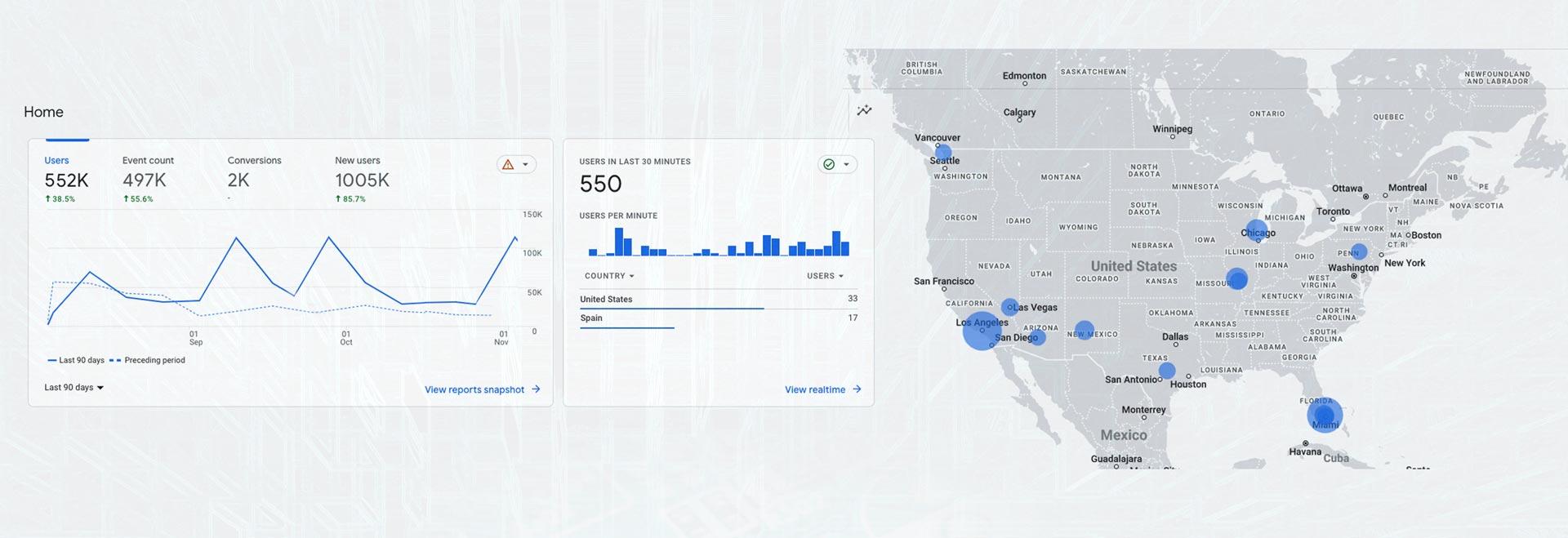INDEX
Web Analytics for Marketing and Business Growth
Leveraging Marketing Analytics for Effective Digital Campaigns
In today’s competitive digital landscape, marketing analytics plays a crucial role in driving effective digital campaigns. By utilizing marketing analytics tools and techniques, businesses can gain valuable insights into their target audience, campaign performance, and ROI. With the help of data-driven marketing strategies, marketers can identify the most effective channels, optimize campaigns in real-time, and allocate resources effectively. From tracking cost per acquisition (CPA) to measuring conversion rates, marketing analytics provides a comprehensive view of campaign effectiveness, allowing businesses to make informed decisions and refine their marketing approach.

Using Business Intelligence Analytics to Drive Decision-making
Business intelligence analytics empowers organizations to make data-driven decisions by analyzing and interpreting complex business data. It goes beyond traditional reporting and offers valuable insights into key performance metrics, market trends, and customer behavior. With the aid of business intelligence analytics, businesses can identify growth opportunities, detect market shifts, and optimize various aspects of their operations. By leveraging business intelligence analytics, decision-makers can gain a deep understanding of their industry, competitors, and customer preferences, enabling them to make informed decisions that drive business growth and success.
Harnessing Data-driven Marketing Strategies for Performance Optimization
Data-driven marketing strategies are instrumental in optimizing performance and achieving marketing objectives. By harnessing the power of data, marketers can create personalized and targeted campaigns that resonate with their audience. Through data analysis, marketers can identify customer segments, uncover consumer insights, and tailor marketing messages accordingly. Additionally, data-driven marketing enables marketers to track campaign performance, measure ROI, and optimize marketing efforts based on real-time feedback. By continuously analyzing and optimizing their data-driven marketing strategies, businesses can maximize their marketing impact and drive sustainable growth. In conclusion, web analytics plays a pivotal role in marketing and business growth. By leveraging marketing analytics, businesses can drive effective digital campaigns and make data-driven decisions. Utilizing business intelligence analytics helps businesses gain valuable insights and optimize key areas of their operations. Moreover, harnessing data-driven marketing strategies empowers marketers to achieve performance optimization and deliver personalized experiences to their audience. By embracing web analytics and leveraging its powerful capabilities, organizations can accelerate their growth and stay ahead in the dynamic digital landscape of today.
Maximizing the Potential of Web Analytics
In order to fully harness the power of web analytics, businesses need to implement data-driven strategies for website optimization, build a data-driven culture and decision-making framework, and stay ahead with the latest trends and advances in this field.
Implementing Data-driven Strategies for Website Optimization
Implementing data-driven strategies is crucial for optimizing the performance of your website. By analyzing metrics such as traffic analysis, user behavior analytics, and conversion rates, businesses can identify areas for improvement and tailor their websites to meet user expectations. This involves using web analytics tools like Google Analytics to gather insights and make data-backed decisions to enhance the user experience and drive conversions.

better decisions based on data
Building a Data-driven Culture and Decision-making Framework
Building a data-driven culture within your organization is essential for making informed decisions based on web analytics. This involves fostering a mindset that values data and encourages data-driven decision-making at all levels. By establishing a framework that promotes the collection, analysis, and utilization of data, businesses can drive continuous optimization and innovation.

AI can provide a significant return on investment (ROI) for businesses. According to a study by McKinsey, AI can increase business productivity by up to 40%. AI can also help businesses reduce costs, increase revenue, and improve customer experience, providing a significant ROI.
Staying Ahead with the Latest Trends and Advances in Web Analytics
To maximize the potential of web analytics, businesses must stay informed about the latest trends and advances in this rapidly evolving field. By keeping up with industry developments, attending webinars, following thought leaders in the field, and regularly exploring resources like HubSpot, businesses can stay ahead of the curve. Adapting to new technologies, techniques, and strategies will allow businesses to leverage web analytics effectively and gain a competitive edge.
